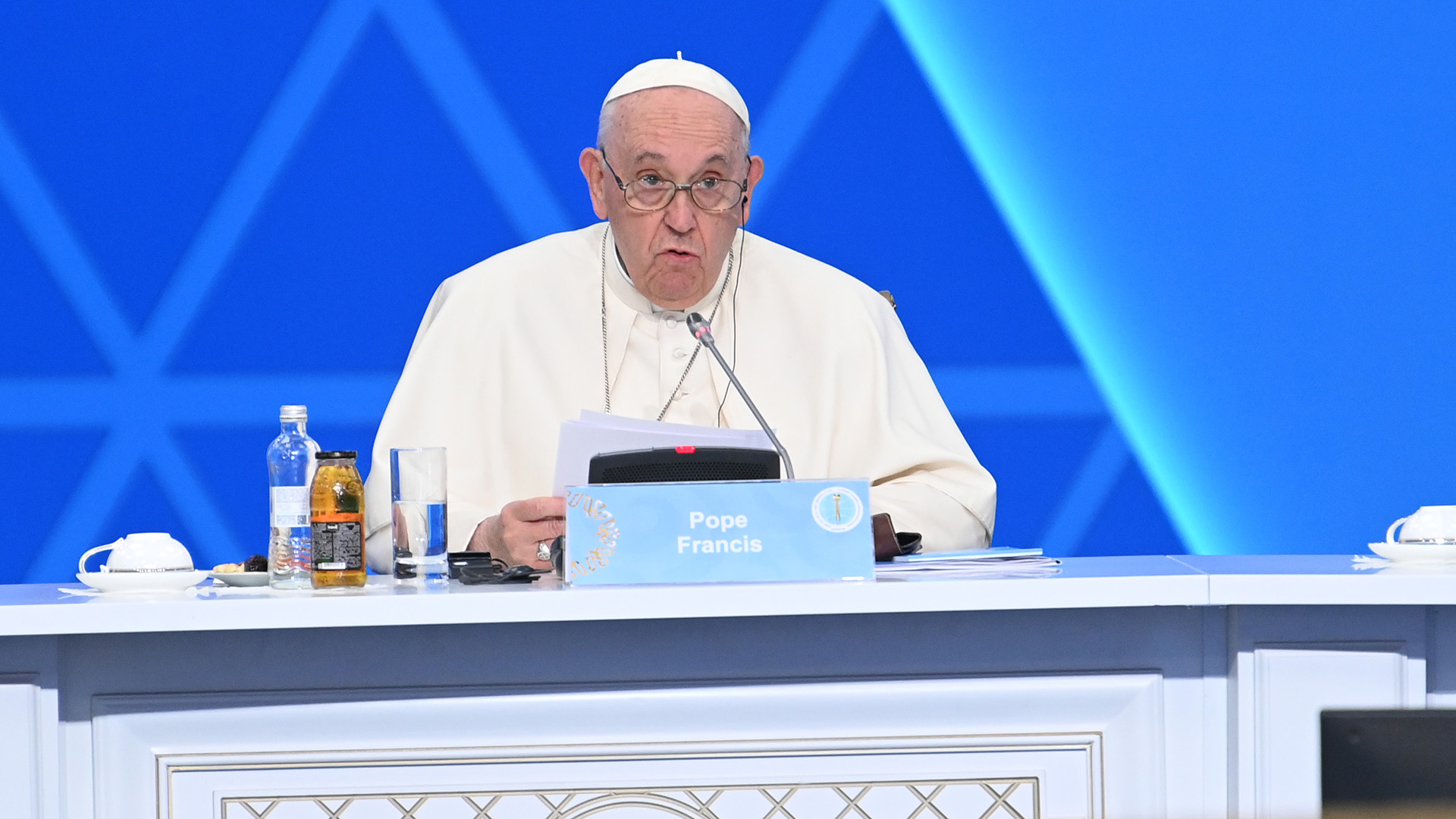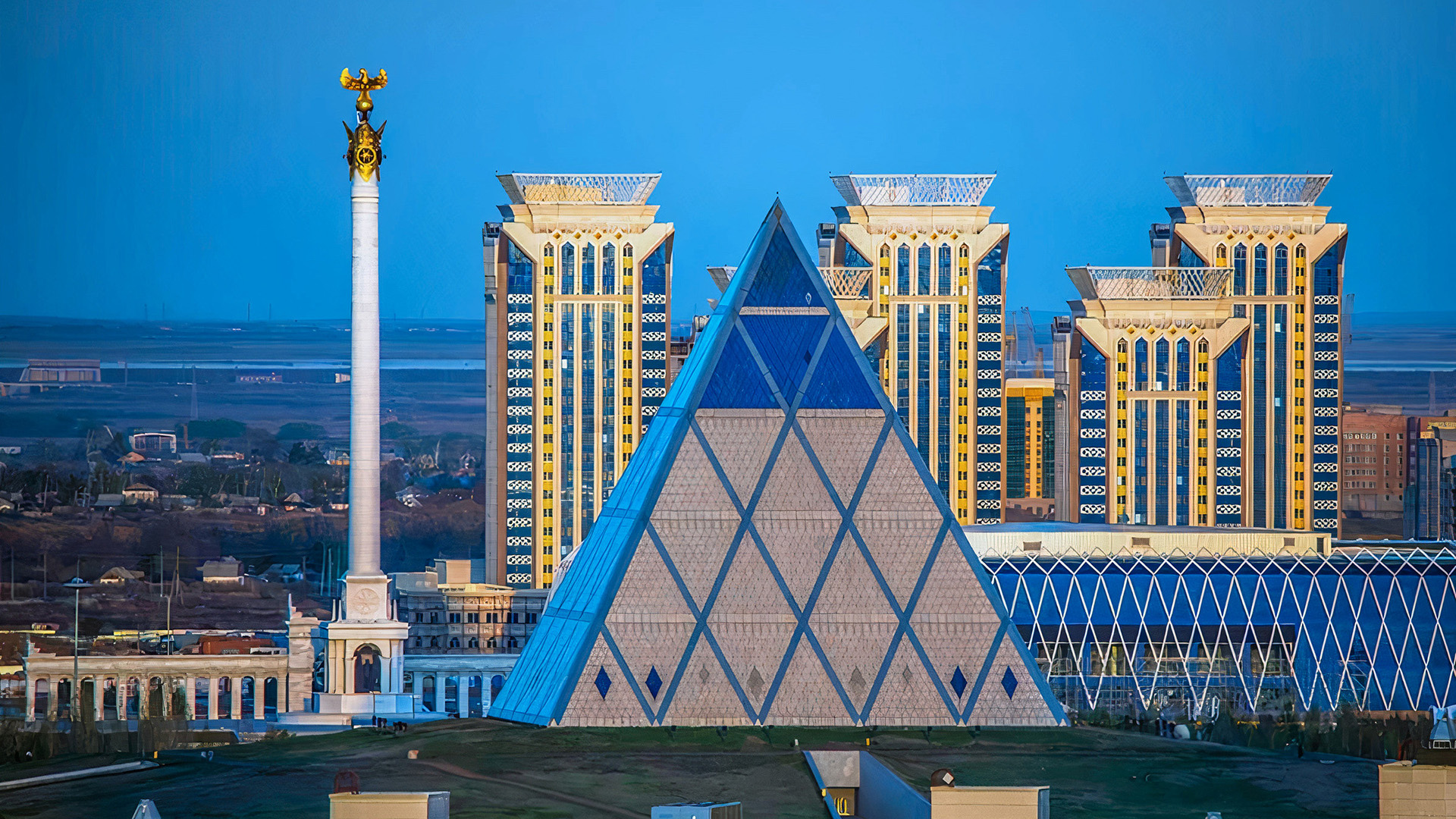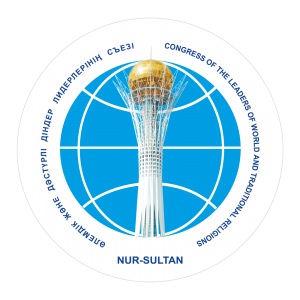
Pope Francis Recalls His Apostolic Journey to Kazakhstan
Pope Francis visited the Kazakhstan capital of Astana for three days in September 2022 to address a summit for the world’s religious leaders.
At the VII Congress of Leaders of World and Traditional Religions conference, over 100 faith leaders and prominent representatives of Islam, Christianity, Judaism, Hinduism, Shintoism, Taoism, Buddhism, Jainism, Baha’i and other religions from more than 50 countries, gathered to come together in advocating for unity.
Pope Francis’ speech, on September 14, was insistent that faith leaders must promote peace.
“If the creator, to whom we have devoted our lives, is the author of human life, how can we who call ourselves believers, consent to the destruction of that life?” he asked. “Mindful of the wrongs and errors of the past, let us unite our efforts to ensure that the Almighty will never again be held hostage to the human thirst for power.”
The Pope praised the initiative of the Congress of Leaders of World and Traditional Religions on September 21 at a general audience in St. Peter’s Square in Rome. He also remembered the Congress’ Final Declaration that affirms the importance of shared values in the spiritual and social development of humankind.

Harmonious dialogue
The Congress was formed in 2003 in the wake of the events of September 11, 2001, at a similar time of global uncertainty and instability; the need to respond collectively to extremism, radicalism and nationalism was recognized then and the same need has been acknowledged now.
“The mission of the Congress is to further strengthen inter-confessional and inter-ethnic harmony around the world, especially at these very challenging times,” says Didar Temenov, Director of the Department of Multilateral Cooperation, at Kazakhstan’s Ministry of Foreign Affairs.
“The world is going through great trials at the moment, and at this time it is very important for religious leaders to make their great contribution to the promotion of dialogue between religions among nations,” he says.
At the recent Congress, with a focus on life in a post-Covid world, the leaders recognized that the negative consequences of a pandemic disease can be overcome only through joint effort, working together and helping each other.
Following discussions, a 35-point declaration was adopted by the majority of delegates to be transmitted to international authorities, political leaders and religious figures around the world.
One of the points was to affirm the role of the Republic of Kazakhstan as an authoritative and global center of inter-civilizational, interreligious and interfaith dialogue. Another point thanked the Republic of Kazakhstan for the excellent organization of the Congress, and to the Kazakh people for their cordiality and hospitality.

In respect of Kazakhstan
The country is home to seventeen major religions and over 100 ethnic groups. Despite being a Muslim-majority population, the country boasts a thriving Jewish community. Kazakhs are proud of their national identity built upon unity in diversity, dialogue, tolerance, acceptance, and empathy for all religions.
As such, Kazakhstan serves as an exemplary nation for promoting peace in the region — a sentiment Pope Francis noted, “Kazakhstan, at the heart of the great and pivotal continent of Asia, was the natural place for us to meet,” he said.
“Its flag reminded us of the need to maintain a healthy relationship between politics and religion. Indeed, if the golden eagle displayed on that flag speaks of earthly authority and ancient empires, the blue background evokes the colour of the sky and thus transcendence. There is thus a healthy connection between politics and transcendence, a sound form of coexistence that keeps their spheres distinct.”
When times feel volatile and people are divided by issues socially, politically and religiously, it takes thoughtful leaders and a peaceful environment to encourage harmony. The Pope’s speech in Astana suggests Kazakhstan could be a good place to start.

